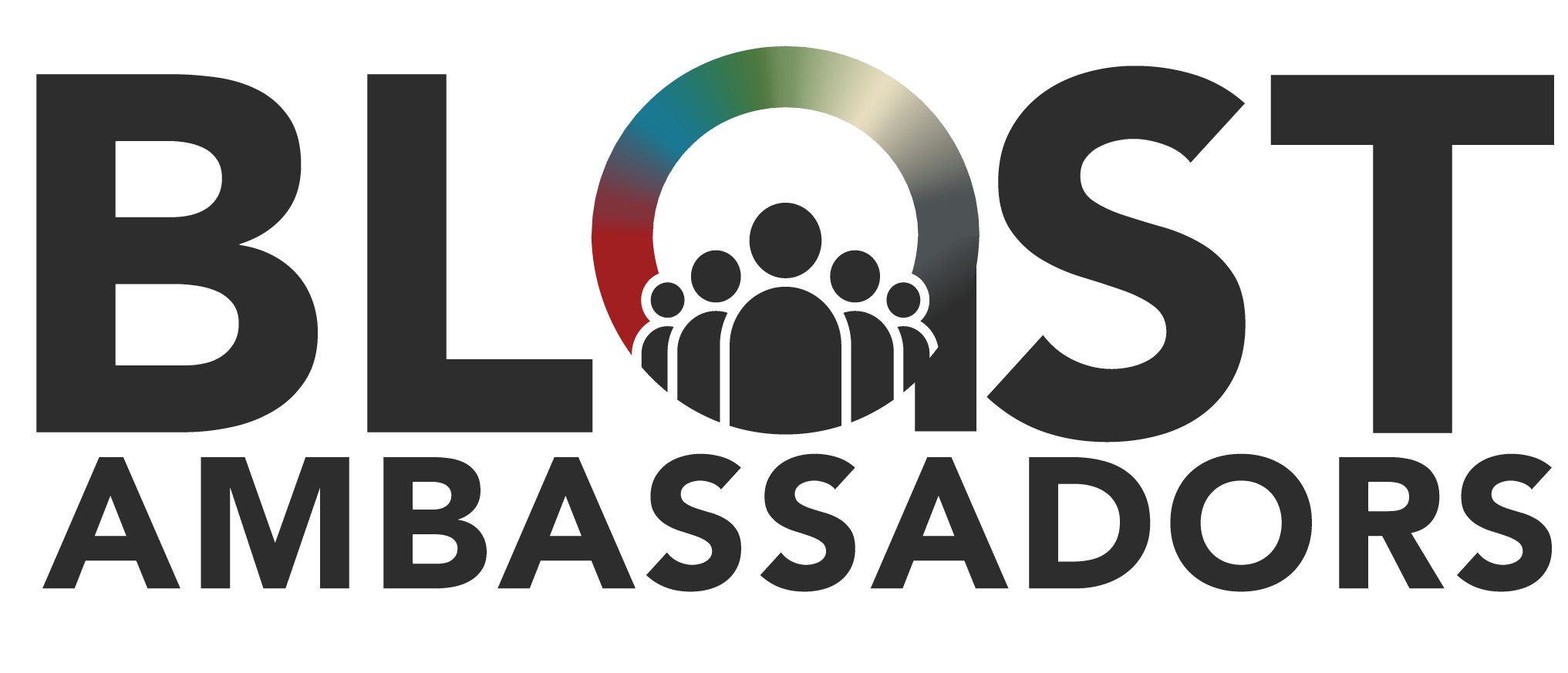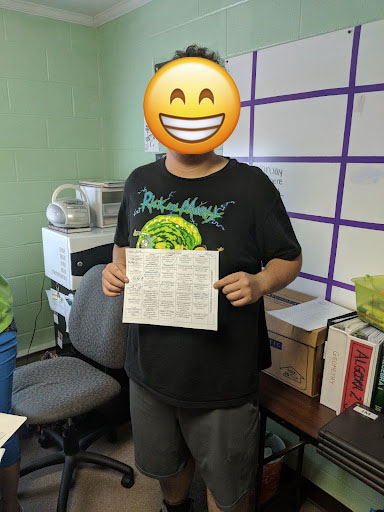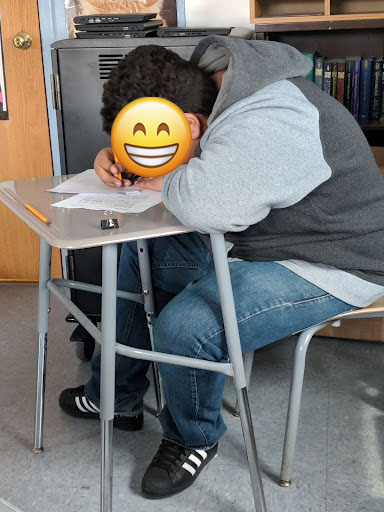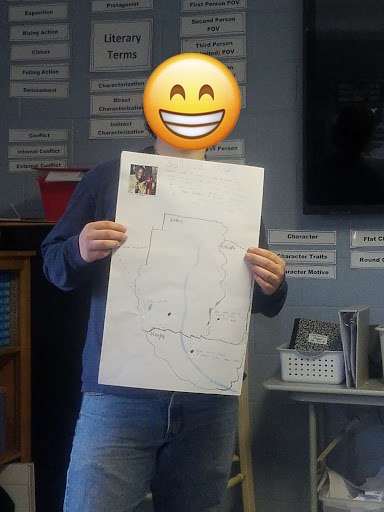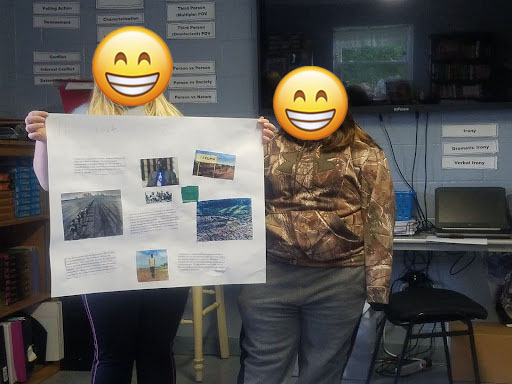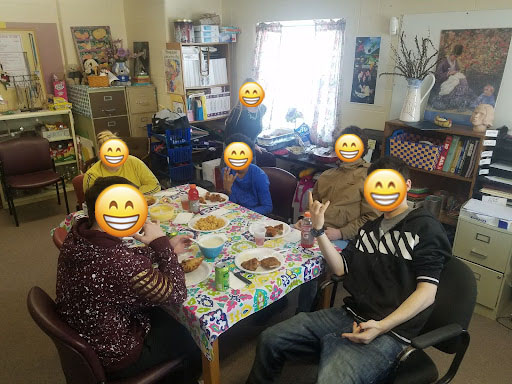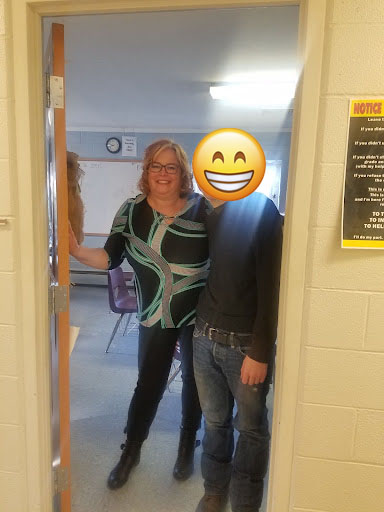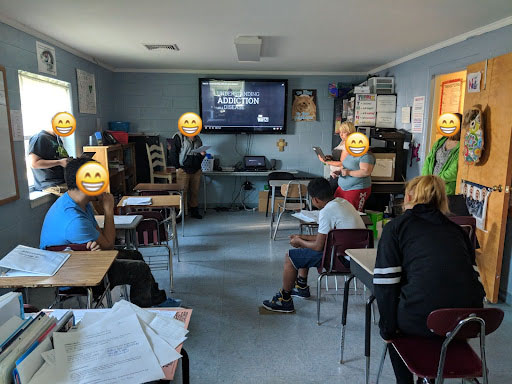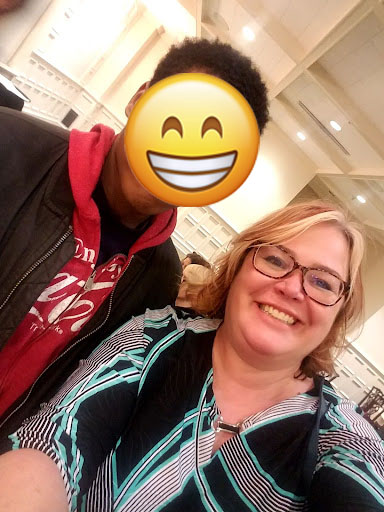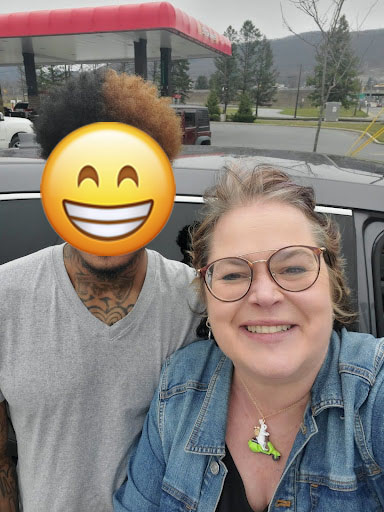Crystal Yoder
A Snapshot into the Life of an Itinerant Teacher
Students work hard in our classes to earn good grades. You can find out students working diligently and proud to showcase their earned grades for a project!
Students work hard in our classes to earn good grades. You can find out students working diligently and proud to showcase their earned grades for a project!
I like to provide choice in my classroom. In these photos, students present choice projects from a book we are reading.
I like to provide choice in my classroom. In these photos, students present choice projects from a book we are reading.
A PRIDE Paw Luncheon is shown. Teachers and counselors selected kids who made good choices to participate in a monthly luncheon. The kids loved them!
I love taking students outside on nice days to work in the pavilion and on the benches by the creek. It is always calming and enjoyable for all.
A Day in the Life of an Itinerant Teacher
This position is itinerant, so every day is different. I serve all non-public schools in Lycoming County school districts.
To receive Act 89 services, the student must show a need for, in my case, academic remediation through teacher and/or parent observations, grades, and testing that I perform on the student. Students who come to non-public schools with an evaluation from their home schools or a doctor would not necessarily need to be tested by me and could go directly onto an Act 89 Plan.
Act 89 Plans are similar to Individualized Education Plans (IEPs) in that testing is completed, an objective is developed, and there is a meeting with parents and teachers to develop the plan. The plan is reviewed annually, and progress is recorded and sent home every marking period. Currently, I service students for up to 30 minutes per week, which could be decreased if my caseload increases.
Students who are identified with ADHD or a diagnosis that could grant them an IEP in the public schools are considered Equitable Participation (EP), and those without such identification are Act 89. Both can receive Act 89 academic services from me. Some EP students I just track, and I am there if they should need academic remediation. These students would not have Act 89 Plans and would need to have a plan in place before I could pull them for services.
Typically, elementary students have plans focused on math or reading, while high school students plans focus more on organizational skills, study skills, or grade averages in general. Self-advocacy is very important, and I do my best to encourage all my students to reach out if they need support. If I am scheduled to be at their school, they know they can come to me for help in whatever they struggle to complete.
I help the teachers make accommodations for their students’ needs. I also help the parents by encouraging them to hold the children accountable for their responsibilities, such as homework, studying for tests, and making it to school on time. I also stress to parents the importance of being structured and how a structured home brings many positive aspects to the educational process.
Get to Know Our Ambassador
Transcript
Welcome to BLaST the Airwaves with BLaST Intermediate Unit 17. Here at BLaST Intermediate Unit 17 we strive to transform lives and communities through educational services. On this podcast, we will provide you with educational solutions for all, no matter the learning environment. So teachers, administrators, caregivers, what are you waiting for? What would happen if we started questioning “What if”? What if we had a positive perspective on education? What if we flipped the switch on education? What if we were the solution?
“Today we have the pleasure of speaking with Crystal Yoder, one of the BLaST Ambassadors here at BLaST Intermediate Unit 17. Within our organization, Crystal serves as an itinerant teacher in our programs. Crystal, thank you for joining us today to discuss your role within the organization and your experiences through our Ambassador program. Are you ready to blast the airwaves?”
“I sure am.”
“Wonderful. So why don’t we start by, you know, you telling us a little bit more about yourself and also your role within the organization.”
“ Sure. I am an Act 89 teacher for Lycoming County. Act 89 services are academic remediation services in the areas of reading and math that are provided to non-public schools such as Mountain View Christian School and St. John Newman Regional Academy. I work with children in grades kindergarten through 12th grade, and every day is different.
“Wow. Absolutely. I mean, that’s a big span of grades, K to 12. And you also have had other roles in the Intermediate Unit as well, right? You also worked in our academy programs as well?”
“That is correct. I’ve worked with all Eds as well, alternative education program.”
“ Wonderful. So during the Ambassador program, we spent a lot of time discussing the Intermediate Unit as a system. As part of the ambassadors, you also share our narratives with the community and Intermediate Units are very unique and very different compared to school districts and so forth. So can you share with our listeners why maybe you chose the route of an Intermediate Unit? I always joke, the Intermediate Unit “life”.”
“ Sure. I have had the very best experiences working for BLaST. I’ve been working for BLaST for nine years now and before that I had worked in a school district in Tennessee. BLaST has all kinds of specialists who are available to me. For example, if there’s a situation that would arise that I’d have a question or concern regarding behavior, speech, IT, trauma-informed care, or any number of other issues, there is someone or a group of people in the IU that are more than willing to offer support to me. Our supervisors are also supportive and available for support as well. I’ve just found having that support behind me just being so helpful to me in many ways.”
“Yeah, I would agree. I mean, we have such a huge geographical footprint. You know, they say Blast IU is twice the size of Delaware. Right? But the support, you know, it’s just one phone call away. So I feel the same way as well in that experience and when I shifted over here. So now that we’ve established your “why” as an Intermediate Unit, I also like to talk about your role within the organization because there are so many paths in the Intermediate Unit and you chose the itinerant teacher. So, can you explain why you chose that path?
“Well, I guess teaching in general, I chose, my father was a teacher and a wrestling coach and I saw the positive influence he had and continues to have on many lives. My sister and I are both teachers and we wanted to have that opportunity to make a positive difference in the world. I can’t imagine doing anything but teaching. The itinerant position just kind of came about. I have done different things and that’s just what I’m doing in this chapter of my life and it has been something different than anything I’ve ever done before in teaching. I just like to kind of be well-rounded and learn a lot of different roles in the teaching world. So it’s been enjoyable.”
“ Yeah and so we mentioned itinerant, but then we have classroom teacher. Can you explain for our listeners what’s the difference, what makes you itinerant and not just classroom?”
“ Sure. I am mobile. I’m in different places on different days. I have a schedule where I go to different schools on different days, so I don’t really have a classroom per se,- kind of work out in my car. I just have different schools that I go to, so not one home, really.”
“How many schools do you, do you service?”
“1, 2, 3. I have four right now.”
“Okay, great! And I know our listeners will be able to, you know, follow you on your website as well on the ambassador site because you also talk about your experience in alternative education as well when you were not itinerant in just in one location. So they can see both sides. So, the other piece is that throughout the ambassador program, one of the pieces outside of community service, which we had the chance to, to dive into the transition conference, they’re the post-secondary transition conference. The other component is that we have you shadow someone outside of your division or outside of your program.
So you get to learn a little bit more about the Intermediate Unit as a whole. I’m assuming, I haven’t had the chance, I already told you I’d love to just shadow what you do every day, I’m assuming it was pretty exciting. So who did you shadow again?”
“I shadowed Cindy Young and Mary Jackson at Clear Vision Residential Program. It’s a program for girls. It’s a center for girls in Montgomery, Pennsylvania. This program is for teenage girls, some of whom have made bad choices or poor choices of their own, and others who don’t have a family suitable for them to live with. They come from all over Pennsylvania and are court appointed, meaning a judge has chosen Clear Vision as an appropriate living option for them. The girls live, eat, and go to school and counseling all in the same building. Typical stay is anywhere from six to nine months, but some stay longer. These girls have often experienced major trauma in their lives, which often manifests itself in inappropriate behavior and poor social skills. The goal of the program is to provide the girls with new strategies to overcome their difficulties and ways to connect with their home, communities, families, and schools. The school component is built on the foundation to increase academic success while teaching appropriate social skills and providing a safe learning environment for students to learn and grow together. I was pleased to see how polite the girls were and they were just dear, dear girls. Expectations are clearly explained and understood, and rules are in place. It is a very well run program.”
“ Yeah, so our role as the intermediate unit is to do the educational component as well, correct?”
“Correct.”
“Like we don’t run the therapy or any needed for that, but I, I believe, and correct me if I’m wrong, it’s about three hours of educational time that our, you know, classroom teachers would go in, itinerant classroom teachers would go in and provide, is it three hours?”
“No, it’s more than that. It’s a typical day school day.”
“ Awesome. Okay. It’s just a whole different avenue before I came to the Intermediate Unit that I had no idea we serviced and you know, I think you and I were just talking about just the importance for these students, for their education to see, you know, perhaps their way out or alternative solutions that, that they could have for their life and see themselves in a positive manner.”
“Absolutely. Absolutely.”
“So you guys were our first class, there’s six of you for our Ambassador Program for the Intermediate Unit, and we’re continuing our program next year for our second class. So, you know, if you had your biggest takeaway or biggest piece of advice for ambassadors for next year, what would, what would that be?”
“I just, I love, love, love to meet new people and network and make new connections. And I love to learn. I’m a dry sponge. I was able to meet exceptional people doing fantastic things in a plethora of departments of our IU.I would love to say that I would have to say that my biggest takeaway is that I loved Clear Vision so much that I will be teaching English and social studies there starting the fall, and I’m just thrilled- Thrilled!”
“That is amazing. I’m so glad you saw a connection and a calling. I actually have goosebumps right now, you know, and that’s, that’s part of the Intermediate Unit. We enjoy so many avenues that if you don’t, if you’d like to explore something, we have that opportunity. So I’m excited. I know you and I will be working closely as well with some innovative programs.”
“I can’t wait.”
“ Yes. So, and those girls will be really lucky to have you.”
“Oh, thank you.”
“ So, I’m going to throw a curve ball at you.”
“Sure.”
“I know I’m going to throw you a question here, but I didn’t get to talk with the other ambassadors about the other component, which I mentioned a little bit earlier about our service project. Each class does a service project and Jeff Pelly on the Division of Ed Planning side works with Penn College to do the post-secondary transition conference. And so our Ambassadors have the chance to support and provide some service during that day. It’s one of our biggest days of the year, and I think, you know, we had a huge increase amount of participants there. What was your experience like there, volunteering there?”
“What a wonderful experience that was. Anthony Ferraro was the main speaker and he hit it out of the park. I was watching, to give you a little background, he was a wrestler and he was visually impaired. He was legally blind and just had a great outlook on life. He was just positive, positive, positive and he’s young. I would watch the kids while they’re listening to him talk and then we had the group of students up on the stage that that spoke and, and I’m watching the kids while they’re listening to these people talk, and you could have heard a pin drop when those people were talking and, and they’re people just like them. I mean, they’re younger people. Teachers can say things, you know, over just like parents, we can say things over and over and over again and they don’t listen. But when they’re people that they see themselves more like younger people and you could have heard a pin drop and I, I’m sure it changed a lot of lives and Jeff Pelly and all those that put that together did a fantastic job. It was wonderful!”
“ Yeah. And, it was so cool to see the vendor fair, not even the vendor fair, but like the post secondary transition services, all the community partnerships because this conference is open to caregivers, family members, the students themselves. So we had a really great turnout and it’s just helping students in their post-secondary, you know, avenues and what they’re looking to get into in their life. So I’m excited for next year’s event and we’ll see how that takes us but thank you for volunteering at that and we’ll continue that.”
“Oh, I loved it. I loved every minute of it.”
Yeah. So it’s now time for my favorite part. I think our listeners get tired of me saying that because it truly is my favorite part. To learn a little bit more about you outside of the professional realm. So this is our “BLaST Five”, and we’re going to hit you with about five random questions to get to know you and that you can quickly answer. So these are all sort of related to self-care and again, outside the workplace. So Crystal, what is your favorite genre of music?
“I would have to say classic rock.”
“Oh, okay. All right. What about your favorite read? I know you’re going be teaching English, so…”
“Whatever I happen to be reading at the time. Right now I’m reading a number of graphic novels that I hope to be able to use in my new classroom.”
“Yes. Awesome. What about your favorite Netflix series or TV show?”
“I’m not really a TV watcher per se. I would have to say history channels and I love to watch the TED Talks.”
“Yes, Ted Talks are always so fantastic. Favorite food or restaurant?”
“ Ha! There’s no question I would have to say the Susquehanna Smokehouse in Lewisburg. It’s fantastic.”
“I don’t even, I don’t even think I’ve heard of that. Have to add that.”
“So good. They don’t accept card. You have to have cash.”
“Oh, okay. All right. That’s a good reminder for our listeners. And then your favorite motto or quotes that you live by?”
“Currently, Anthony Ferraro’s, “the only disability is a bad attitude”. I took that away from the post-transition conference. He was wonderful.”
“Yeah. Yes. Such a great, when he said it, I was like, mic drop, like, yeah, we’re done. That’s all you. He could have walked up there and just said that line and it was done.”
“ The newspaper picked up on that too. I noticed that they did write that in the paper.”
“ So we cannot thank you enough for your time today, Crystal. We know our listeners enjoyed it too, I’m sure.”
“Thank you so much.”
“Yeah. They might want to connect with you a little bit further, but by doing so, they could go to www.iu17.org on our BLaST Ambassador page and they’ll be able to connect to you, get to hear about what a day in the life is for you, which seems interesting and I get to know you a little bit more. So Crystal, it has been a blast! Again, thank you for taking some time today to blast the airwaves with us and our listeners, and I’m sure I will be seeing you soon. So take care and let’s talk soon!
“Sounds great! Thank you, Rebecca.”
“We would like to thank you for BLaSTing the Airwaves with us today. If you like the show, please subscribe or leave a review. If you want to know more, check out www.iu17.org for further resources and show notes. As always, we want to thank you for what you do every single day. Remember, keep shining! We’ll be back next episode to provide you another educational solution for all. As we continue to transform lives and communities through educational services.

